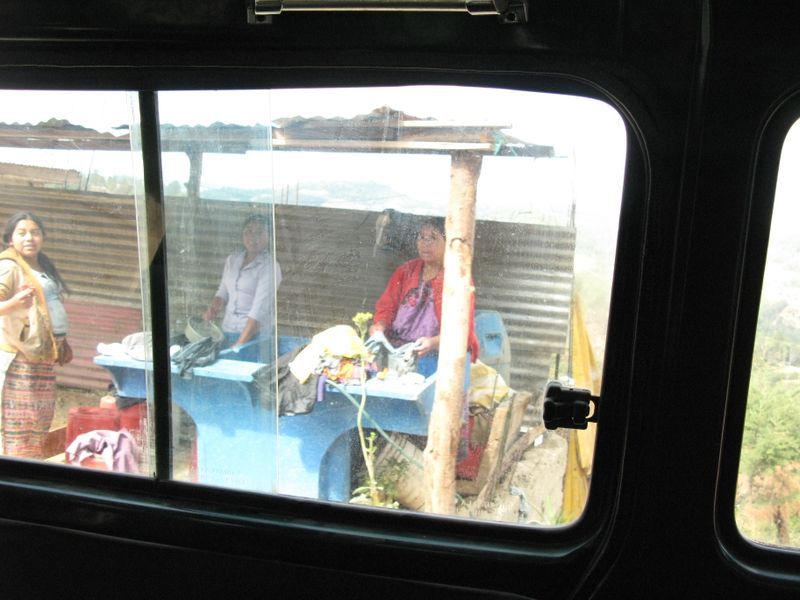Thirteen years after the peace accords were signed here, violence and fear continue to be a way of life. In a country as bloody as Guatemala, the last two weeks have stood out. In the past several years bus drivers have became targets for street gangs seeking extortion money; but the thugs are not breaking the drivers' kneecaps, they are blowing their heads off. The number of bus drivers killed so far this year is up to 33.
Last week, as I was heading back from the countryside where I'd been visiting malnutrition clinics, the health worker who was acting as my guide told me that four bus drivers in Guatemala City had been killed all in the same day. During one attack, an infant was shot and killed. A common theory, taken seriously by both government officials and everyday Guatemalans, was that this was something beyond mere street crime, but was in fact an effort by the right-wing opposition party to spread chaos and fear to undermine the current center-left government. Public officials received anonymous phone calls warning of an imminent coup. When I asked a U.S. diplomat if a coup was likely, the answer was: "probably not."
There were fears the government might invoke martial law in response to the bus attacks. It didn't, but many people hoped it would. The police here are perceived to be worse than useless - they are often considered to be corrupt and part of the problem. During the elections in 2007 many politicians were killed. It is a culture of impunity that permeates everyday life. This was underscored by a more openly political attack last week after the country's human rights ombudsman released a report on atrocities from the country's 36 year old civil war. It is often forgotten, purposefully or no, that more people disappeared and were killed in Guatemala's civil war than in all of the other Latin American countries' combined. Almost immediately after the report was released, the ombudsman's wife was kidnapped and tortured with cigarettes.
Between the gangs, the narco-traffickers, and the looming military and police forces, Guatemala's violent past continues to intrude in the present like an infected wound. After a long discussion about events both recent and past with a Guatemalan colleague (her father was tortured during the civil war, also with cigarettes), she cuts off the discussion: "I don't like to talk about the past. It is not good to know too much history - it takes away your hope for the future."
